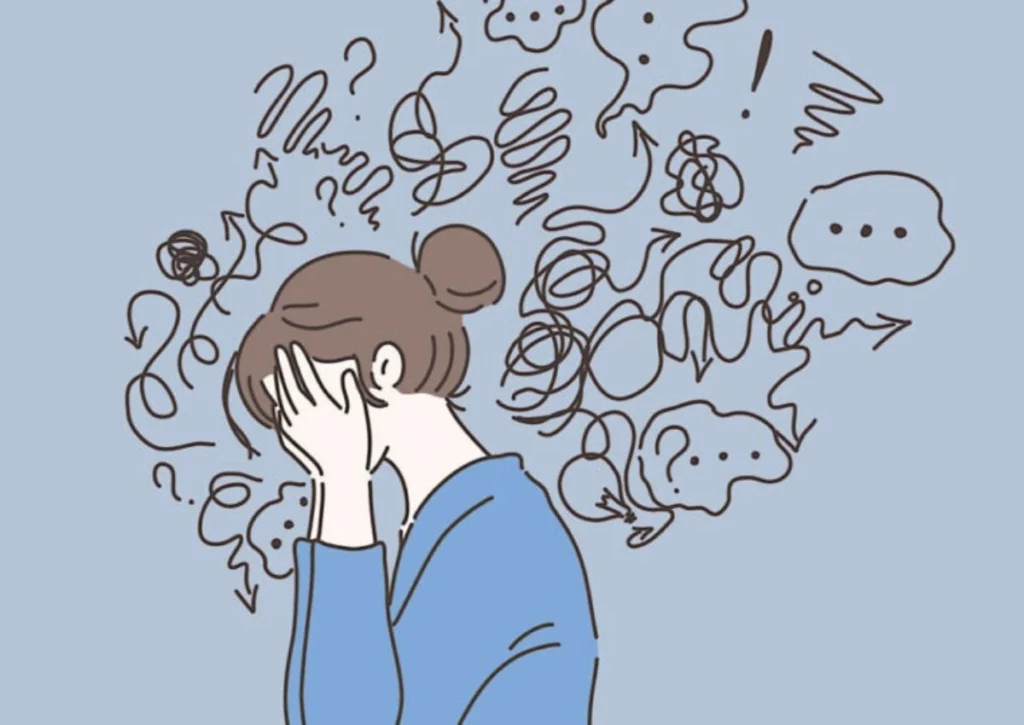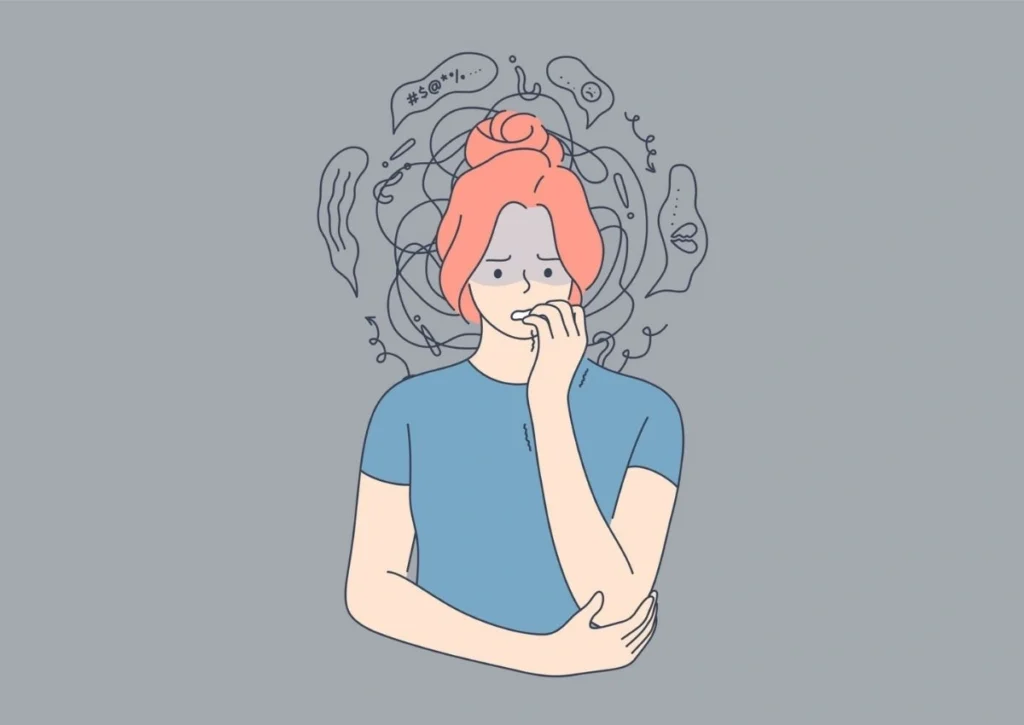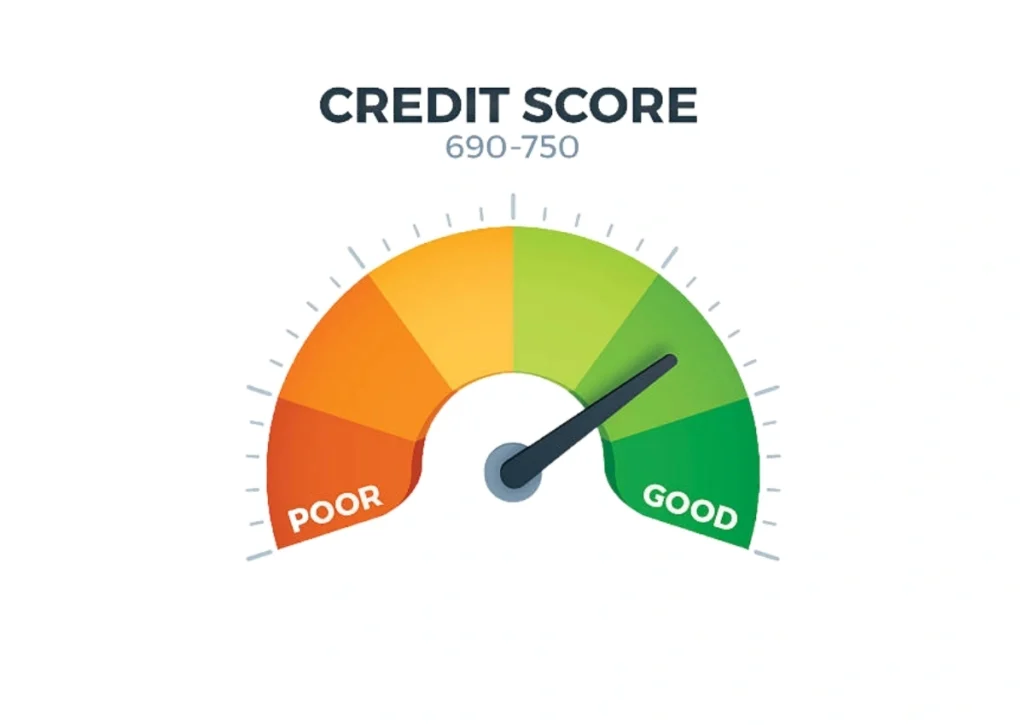Escaping screens and the anxiety caused by it is a near-impossible task in our digital world. The fruits of technology that were once separate from most of our lives are now the stars of our daily lives. The internet has given us the power to estrange from each other and the world but in a much efficient way.
On the downside, the overstimulation presented to us in the form of various devices has become one of the main reasons for “anxiety from screen time”. Many individuals complain of restlessness, emptiness of the mind, or even anger after they have spent several hours scrolling through their social media accounts or working online. This sensation of being drained is more often referred to as screen time anxiety. It is particularly widespread among students, office workers, and the elderly who spend many hours working online, studying on the internet, or surfing the web for pleasure.
It is positive, though, that the feeling can be avoided to a great extent, and technology can be re-established in one’s life, in a more sustainable manner, with a proper mindset and planning.

Understanding Screen Time Anxiety
We have to understand what causes these hard times before we suggest the solutions. Screen time anxiety is a term for the stress, tension, or discomfort that people may experience if they are spending too much time staring at screens or if they are not allowed to check their devices.
Additionally, some symptoms are:
~Feeling the need to always be on the lookout for new notifications or messages
~Experiencing anxiety if the phone is not within arms reach
~Not being able to stay calm mentally after surfing for hours online
~Having difficulty concentrating on activities without technology
~Getting headaches or eye problems that might lead to irritability
The anxiety is different from only mental health; nevertheless, it impacts the physical well-being, connections, and productivity as well.
Why Screen Time Increases Anxiety
Several factors can contribute to anxiety resulting from excessive screen time.
1. Information Overload : The constant updates, news exposure, and activity on social networks can stress the brain.
2. Comparison Culture: The nature of social media is that it quite implicitly pushes us to compare our lives with others, whereby the resultant effect is getting us feeling insecure most of the time.
3. Disrupted Sleep: The emission of blue light from computer display screens hampers the natural process of sleep induction hormone production thus leading to sleep cycle disruption.
4. Reduced Physical Activity: A gloomy consequence of long screentime is little-to-no physical activity thus making the person susceptible to low moods and instability of mental health.
5. Fear of Missing Out (FOMO): A habit of always bringing the phone to see if there are updates does seem to be an unhealthy cycle whereby a person grows more dependent on it and is later no longer able to function without it.
The first step in overcoming screen time anxiety is to identify these triggers that are the main cause.

Practical Ways to Reduce Screen Time Anxiety
1. Set Screen Time Limits
One of the easiest but most efficient methods is to determine the time of work on particular applications or devices. Nowadays, a lot of smartphones have a feature that is integrated for the tracking and limiting of user time. What happens is that by creating daily limits you become more aware of your own habits.
2. Practice Digital Detox Hours
It is not always feasible to have a complete digital detox, but one can feel relief from anxiety by allotting certain hours of the day away from screens. For instance , do not allow the first hour after waking up and the last hour before going to bed to be interrupted by using your device.
3. Create a Balanced Routine
A lot of online activities can affect your real-life interactions negatively. However, balancing your time on the screen with hobbies such as reading , cooking, gardening, or playing a sport can naturally decrease your anxiety levels.
4. Follow the 20-20-20 Rule
One of the causes of anxiety is eye strain that usually accompanies the use of screens . So to avoid this, every 20 minutes of using a screen, one should look at something 20 feet away for at least 20 seconds. By doing so, you give your eyes and brain a rest.
5. Limit Notifications
The continuous notifications coming from the applications you use will make you feel pressured and stressed. In addition, you will not be able to concentrate on your work . You can choose to shut off frivolous notifications or pick ‘Do Not Disturb’ time slots to make sure you are not constantly drawn into the never-ending scrolling.
6. Engage in Physical Activity
Working out is one of the most effective ways of relieving stress. Even a 30 minute walk every day can lower anxiety levels because of the release of endorphins , the body’s natural mood boosters. One of the best long-term solutions is to trade off screen time with physical activity.
7. Prioritise Real Conversations
Rather than spending a lot of time chatting online, why don’t you go out and meet some friends or relatives ? The truth is that real human interactions are the ones that give us emotional comfort , and surely no digital connection can substitute them.
8. Practice Mindfulness and Meditation
Mindfulness meditation and breathing exercises do a good job gradually calming the mind in case it is suffering from anxiety resulting from too much time spent on the screen . Even 10-minutes of deep breathing can make a difference.
9. Improve Sleep Hygiene
Rest is very important and lack of it is one of the reasons why anxiety gets worse . If you want to have a good night rest, first reduce screen exposure at least one hour before sleeping, change to night mode, or if you tend to be scrolling, stop it by reading a book instead.
10. Be Conscious of Content
Not all screen time is bad for you. Watching educational videos or being in touch with your family and friends is totally different from doomscrolling on negative news. Be careful of what you ingest , so as not to cause yourself extra stress.
Lifestyle Changes for Long-Term Relief
Short-term measures certainly help, but, in order to reduce screen time anxiety , one must also make significant lifestyle changes.
Establish Screen-Free Areas : Do not allow phones in dining areas and bedrooms.
Plan Non-Digital Activities: Organize trips , attend cultural events, or do volunteering activities that are not related to any form of tech.
Pick Up the Hobbies That Are Productive for You : Painting, writing, or learning to play an instrument can get you away from staring at the screens.
Practice Digital Minimalism : Quit using multiple apps; instead, just stick to those that really matter the most to you.
Coping with Work-Related Screen Time
Most working professionals, however, whose work is dependent on screens, have to deal with it. In such situations:
~Rest for a minute or two every hour.
~Make use of ergonomic friendly setups to lessen the physical weariness.
~Differ work and leisure screens (e.g., don’t start watching Netflix just after working at the office).
When to Seek Help
Sometimes, screen time anxiety can become so intense that it interferes with daily life, relationships , or academic/work performance. In such situations, a visit to a mental health professional is the right thing to do . Professionals can offer coping skills that are effective psychotherapy namely cognitive behavioural therapy (CBT), dealing with anxiety and screen habits, along with other forms of therapy.
Also check:- Know about Trump’s 100% Pharmaceutical Tariff effect on India




